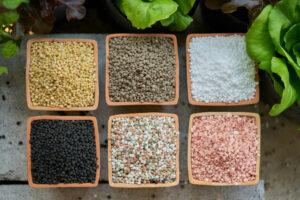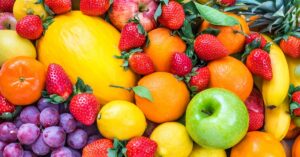Basal fertilization, also known as pre-planting fertilization, has the main purpose to increase soils biological fertility and concentration of mineral elements, providing big quantities of lacking nutrients.
Thanks to basal fertilization it is possible to create the agronomic basis necessary for the correct implementation of plants production.
It differs from the usual fertilization for its extraordinary application.
Generally, it is carried out:
- only once before the cultivation of a soil for herbaceous crops;
- before planting a woody crop (grape, fruit and olive trees).
Basal fertilization guarantees good results of multi-year crops such as fruit trees, while in case of crops in a protected environment, it is better to limit this type of measure because all greenhouses have drip or sprinkling water distribution systems, so fertigation can be effectively used.
Dosage in basal fertilization.
The dosage in basal fertilizations varies according to the results provided by a chemical-physical analysis of the soil concerning: nutrients supply, bulk density, texture, pH, total and active limestone, electrical conductivity, organic substance, Cation-exchange capacity (CEC), total nitrogen, assimilable phosphorus and exchangeable potassium.
How basal fertilization occurs.
This type of fertilization consists in the distribution of slow-release nutrients, which are gradually introduced during the agricultural cycle of crops. Usually, phosphate, potassic and organic fertilizers are used.
The guidelines in a given context may change according to the nutrients, especially in relation to their mobility in the soil:
Nitrogen is the main macronutrient for crops and it is very mobile, both in soil and plants.
For this reason, its application before transplanting in open field crops is strongly discouraged and must be minimized in protected crops (max 10% of total removals).
Phosphorus is an element with low mobility, which stimulates the development of new roots and it is suitable for pre-planting fertilization.
Potassium is not very mobile in soil too and it’s particularly suitable for basal fertilizations. It is the element that improves fruits quality and, thus, its supply is recommended during their ripening.



